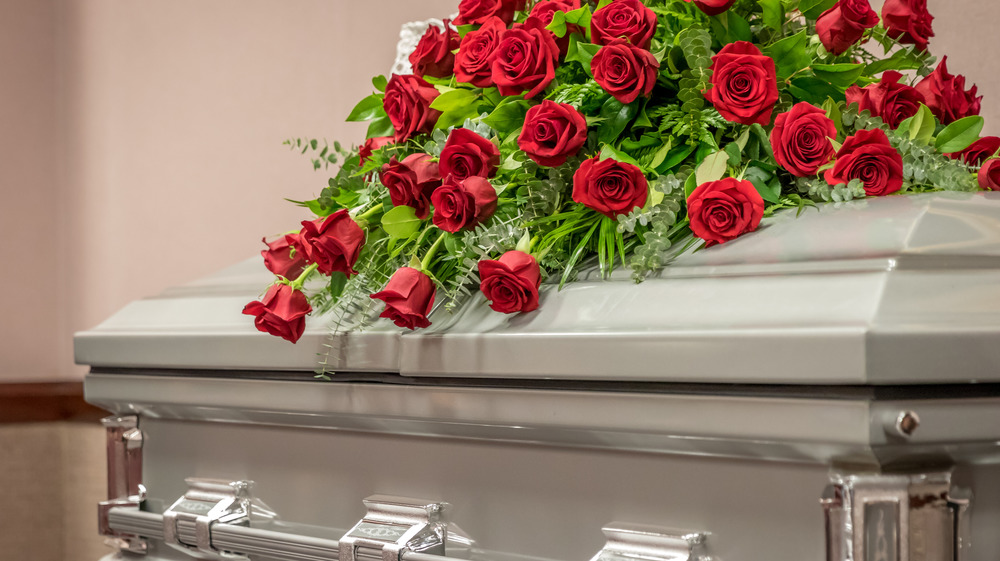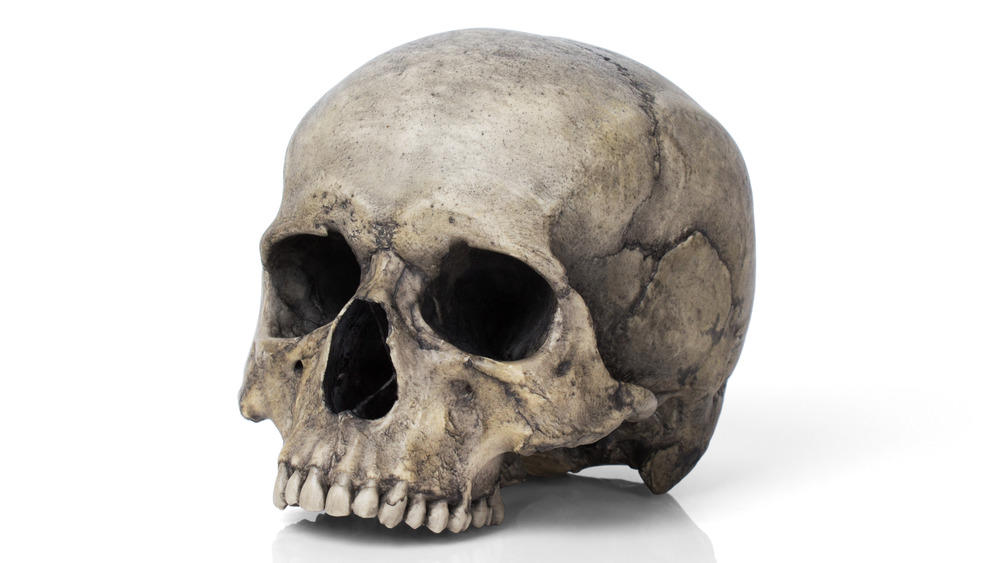What Really Happens To Your Body After 100 Years In A Coffin
It's only human nature to wonder. We know none of us is getting out of here alive, so it only makes sense to ponder the inevitable: What happens to our bodies after we die? Cultures and traditions vary when it comes to death, of course, and so too does the treatment of the body post-death. Some traditions opt for cremation or other methods that chemically alter the condition of the body, while others go a more traditional route — burial in a casket.
You may be surprised to learn, however, that cremation recently surpassed burial as the most frequently chosen option. According to the National Funeral Directors Association, its popularity is only growing since it overtook burial in 2015.
That said, burial in a casket has been a part of our culture for a long time — long enough that we can definitively answer some of those questions people are most curious about but have maybe been too shy to ask. Don't be scared — let's look at this from a scientific point of view.
Much of the change that happens to the body after death starts immediately, long before it is placed in the coffin. According to the BBC, once the heart stops beating and no longer circulates oxygen-rich blood to cells, those cells become acidic and chemical reactions that initiate cell breakdown start.
Here's what happens to the body after death
This is the beginning of a chain reaction of decomposition, which can last decades. We'll spare you some of the more gory bits but just know that, as Business Insider reports, a complex series of bacterial, microbial, and chemical reactions take place that change the body's fundamental composition.
By the time a body's been buried for just four months, the molecular integrity of the cells is pretty much gone, and with that departure, the structure of the tissue begins to, well, rot. (There's no tactful way to say it.) There's significant change after one year, although that process, tissue liquefaction and disintegration, can take 50 years to complete — surprisingly long, given how quickly Mother Nature gets to work on us after death.
By the time a body has been buried for 100 years, very little of what we recognize as the "body" is left. According to Business Insider, you can't even count on your bones being intact by year 80. After the collagen inside them breaks down completely, bones essentially become fragile, mineralized husks. And at the century mark? Not much else to say, folks. According to that same article, it'll essentially just be synthetic fibers left from clothing, and our teeth.

